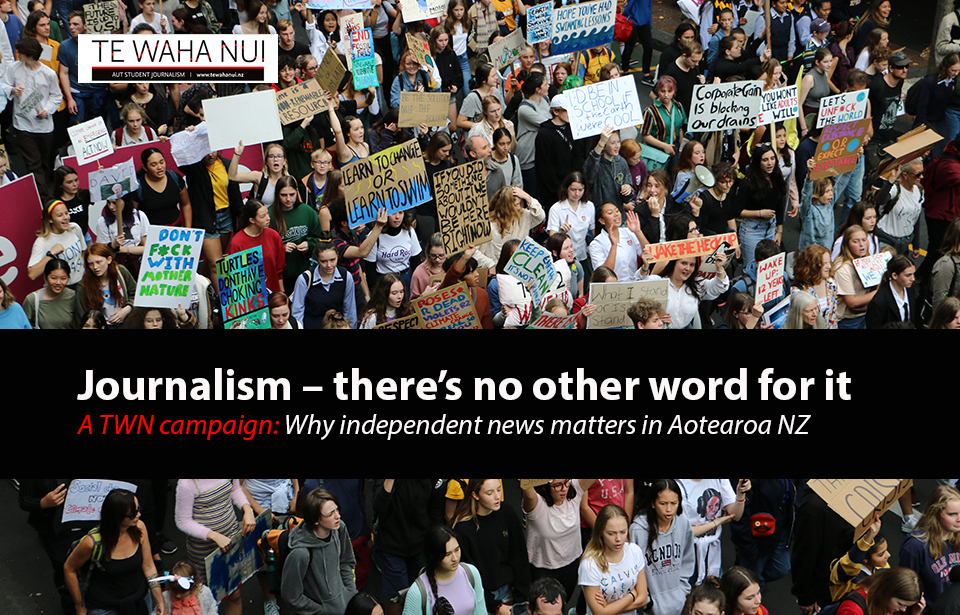Lack of media literacy no laughing matter
• May 22, 2024

As trust in news dips, the gap for media literacy emerges Photo: Madison Smith
The lack of media literacy in New Zealand is declining, raising concerns about education in the digital world.
One person who holds such concerns is NewsHub senior journalist Karen Rutherford who says there is a need for increased media literacy.
“The wider public needs to be educated, there is a lack of trust in authority and in government.
“People believe what they want to believe.”
In New Zealand, our trust in news is declining at rates faster than our overseas counterparts, according to an AUT recent trust in media survey.
Rates of trust in news fell from 53 per cent in 2020 to a mere 33 per cent in 2024.
Rutherford says User-generated content on social media can be seen as a driving issue for the drop in trust.
“Unregulated social media is what worries most journalists today and people thinking what they are seeing is actually news.”
“The way you get your news through Google and all the algorithms, if they know what you’re wanting to read they will give you what you want to read. It is a self-perpetuating thing and people fall into the trap of reading what they want to read so I think awareness at schools is great.”
In an online media literacy survey of 50 people aged 15-25, 80 per cent of participants believed comedic news was not biased.
The survey also found that people believe that comedian Guy Williams was viewed as a journalist.
However, Williams says he’s not a journalist and labels himself as a comedian.
“Comedy is not journalism; it’s opinion.
“Every joke has a weight of opinion behind it and jokes can be just as dangerous”
Over 80 per cent of respondents said that they believe Williams's show ‘New Zealand Today’ was a form of journalism.
“My show is entertainment, not journalism in any way,” says Williams
“It’s really disturbing when people say, ‘I'm their favourite journalist’.”
Williams agrees with Rutherford in thinking media literacy should be compulsory in schools.
“Social media and smartphones are really dangerous for our health… Misinformation is a massive problem.”
Since COVID-19, media literacy in New Zealand has decreased, according to Rutherford and Williams.
“People became caught up in conspiracy theory,” Rutherford says.
“That's where we saw a real change and people started moving to unregulated news.
“They think that is gospel and it's not, it's dangerous.
“I think there does need to be some kind of awareness in media studies that those platforms [social media] are dangerous,”
‘Media Literacy Week’, an effort to equip high schoolers with vital skills to navigate the complexities of the digital age, has recently been formally introduced to schools.
The week was introduced by the National Association of Media Educators and is endorsed by the Ministry of Education.


Whakatairanga ka tika, whakamaua ngaa mita
AISHA CAMPBELL (NGĀTI RUANUI, NGĀ RAURU, NGĀ RUAHINE, TE ATIAWA, TARANAKI) • October 28, 2025

Supporters hope new council will save Western Springs Speedway
Savannah Lendich Jonkers • October 8, 2025


Whakatairanga ka tika, whakamaua ngaa mita
AISHA CAMPBELL (NGĀTI RUANUI, NGĀ RAURU, NGĀ RUAHINE, TE ATIAWA, TARANAKI) • October 28, 2025

Supporters hope new council will save Western Springs Speedway
Savannah Lendich Jonkers • October 8, 2025
